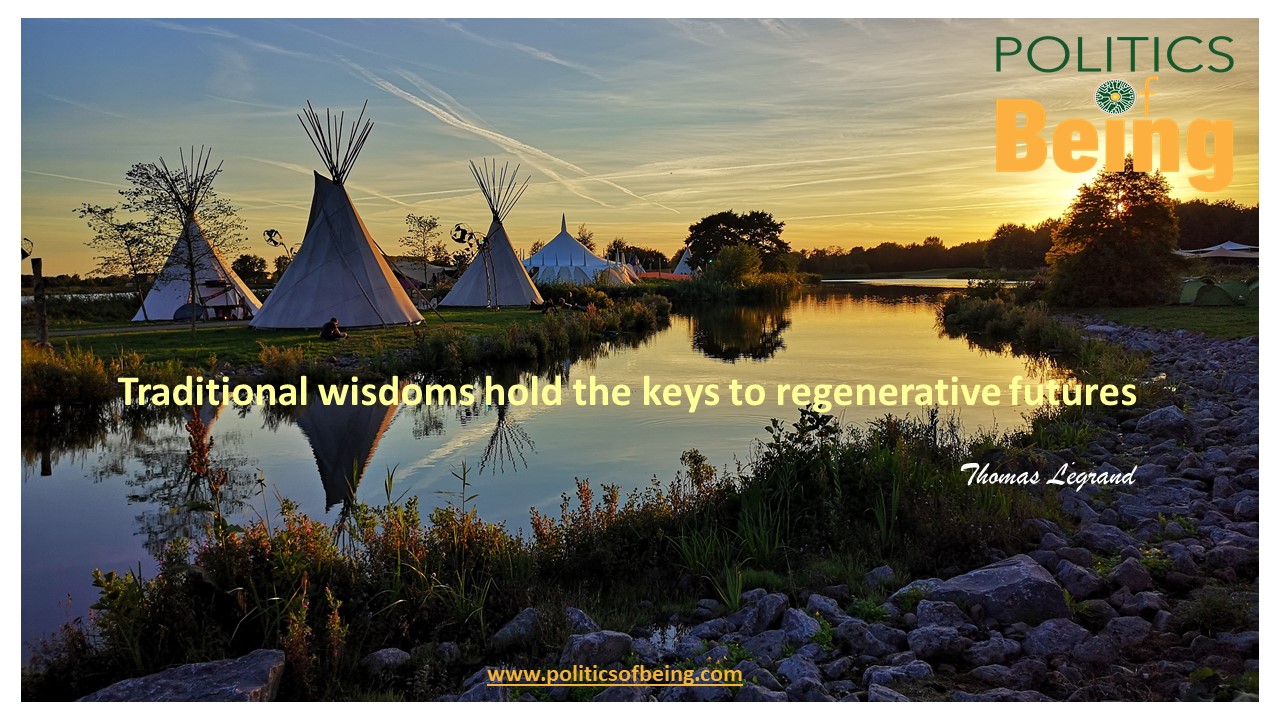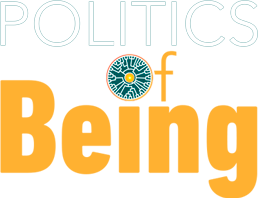
Traditional wisdoms hold the keys to regenerative futures
Nations can find their way out of our social and environmental crises in their traditional wisdoms, which usually express their own version of the story of interbeing. Unlike the Western emphasis on individuality, they tend to emphasize our relational nature, as well as our belonging and responsibilities toward a community. In their RIO + 20 declaration, indigenous peoples presented their cultures as essentially based on the “sacred relationships to each other and Mother Earth.”[1] This community often includes ancestors, spiritual beings, and all life forms (including specific animals and plants) in a given territory, something I believe we should include in our definition of a nation.
The words used by many cultures to designate their traditional wisdom carry this meaning, which is so rich that it cannot be easily translated. For example, “Kapwa” is the basis of Philippine ethics. It can be translated as “togetherness” and “is a recognition of a shared identity, an inner self, shared with others,” which implies “the moral obligation to treat one another as equal fellow human beings,” according to the father of modern Filipino psychology, Virgilio Enriquez.[2] For the Kogis, indigenous people from Colombia, “Zigoneshi”—“I help you and you help me” or “I give you and you give me”—is the key social principle emphasizing exchange, solidarity, and reciprocity. “Fihavanana,” which designates the Madagascan traditional wisdom, is often translated as “relationship,” “solidarity,” or simply “wisdom.”
“Botho” or “Ubuntu” is a central concept of Southern African cultures, which is sometimes translated as “humanness.”[3] According to some commentators, “The concept of UBUNTU embodies an understanding of what it is to be human and what is necessary for human beings to grow and find fulfilment.”[4] Based on the guiding principle of “umuntu ngumuntu ngabantu” (“a person is a person through other people” or “I am because you are”),[5] it affirms that “our deepest moral obligation is to become more fully human and this means entering more and more deeply into community with others. So although the goal is personal fulfilment, selfishness is excluded.”[6] “It is an ethical concept and expresses a vision of what is valuable and worthwhile in life.”[7]
Like the cultures they emanate from, these notions should not be seen as closed entities with fixed meaning and purely endogenous development but rather as living concepts, offering unique approaches to largely universal values and whose evolution can benefit from intercultural dialogue.
Broodryk, Johann. 2008. Understanding South Africa: the Ubuntu way of Living. Pretoria: Ubuntu School of Philosophy.
Dolamo Ramathate. 2013. “Botho/ubuntu: the heart of african ethics.” Scriptura 112 (1): 1-10.
Lagdameo-Santillan, Karina. 2018. “Roots of Filipino Humanism (1) ‘Kapwa.’” Website content. Pressenza International Press Agency, July 24, 2018. https://www.pressenza.com/2018/07/roots-of-filipino-humanism-1kapwa/
Shutte, Augustine. 2001. Ubuntu: An Ethic for a New South Africa. Pietermaritzburg: Cluster Publications
[1] https://www.forestpeoples.org/sites/default/files/publication/2012/06/final-political-declaration-adopted-rio20-international-conference-indigenous-peoples-self-determina.pdf, accessed July 22, 2020.
[2] Lagdameo-Santillan 2018
[3] Dolamo 2013
[4] Shutte 2001, 2, quoted in Dolamo 2013, 2.
[5] Brooddryk 2008, quoted in Dolamo 2013.
[6] Shutte 2001, 30, quoted in Dolamo 2013, 1.
[7] Shutte 2001, 2, quoted in Dolamo 2013, 2.
